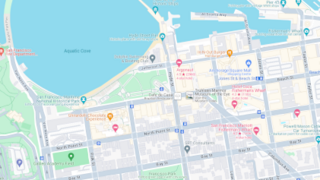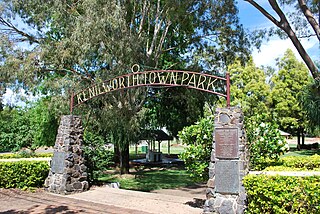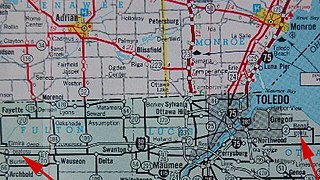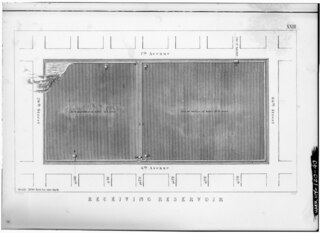Related Research Articles

A phantom island is a purported island which was included on maps for a period of time, but was later found not to exist. They usually originate from the reports of early sailors exploring new regions, and are commonly the result of navigational errors, mistaken observations, unverified misinformation, or deliberate fabrication. Some have remained on maps for centuries before being "un-discovered."

The Internet Archive is an American digital library founded on May 10, 1996, and chaired by free information advocate Brewster Kahle. It provides free access to collections of digitized materials including websites, software applications, music, audiovisual and print materials. The Archive also advocates for a free and open Internet. As of January 1, 2023, the Internet Archive holds more than 38 million print materials, 11.6 million pieces of audiovisual content, 2.6 million software programs, 15 million audio files, 4.7 million images, 251,000 concerts, and over 832 billion web pages in its Wayback Machine. Their mission is to provide "universal access to all knowledge."

A tricorder is a fictional handheld sensor that exists in the Star Trek universe. The tricorder is a multifunctional hand-held device that can perform environmental scans, data recording, and data analysis; hence the word "tricorder" to refer to the three functions of sensing, recording, and computing. In Star Trek stories the devices are issued by the fictional Starfleet organization.
Fictitious or fake entries are deliberately incorrect entries in reference works such as dictionaries, encyclopedias, maps, and directories, added by the editors as a copyright trap to reveal subsequent plagiarism or copyright infringement. There are more specific terms for particular kinds of fictitious entry, such as Mountweazel, trap street, paper town, phantom settlement, and nihilartikel.
In cartography, a trap street is a fictitious entry in the form of a misrepresented street on a map, often outside the area the map nominally covers, for the purpose of "trapping" potential plagiarists of the map who, if caught, would be unable to explain the inclusion of the "trap street" on their map as innocent. On maps that are not of streets, other "trap" features may be inserted or altered for the same purpose.

Google Maps is a web mapping platform and consumer application offered by Google. It offers satellite imagery, aerial photography, street maps, 360° interactive panoramic views of streets, real-time traffic conditions, and route planning for traveling by foot, car, bike, air and public transportation. As of 2020, Google Maps was being used by over one billion people every month around the world.

Kenilworth is a rural town and locality in the Sunshine Coast Region, Queensland, Australia. In the 2016 census, the locality of Kenilworth had a population of 558 people. In the 2021 census, Kenilworth had a population of 604 people. The residents of Kenilworth comprise of 49.0% males, 51.0% females, and reported a median age of 51 years old.

OpenStreetMap (OSM) is a free, open geographic database updated and maintained by a community of volunteers via open collaboration. Contributors collect data from surveys, trace from aerial imagery and also import from other freely licensed geodata sources. OpenStreetMap is freely licensed under the Open Database License and as a result commonly used to make electronic maps, inform turn-by-turn navigation, assist in humanitarian aid and data visualisation. OpenStreetMap uses its own topology to store geographical features which can then be exported into other GIS file formats. The OpenStreetMap website itself is an online map, geodata search engine and editor.

Google Books is a service from Google that searches the full text of books and magazines that Google has scanned, converted to text using optical character recognition (OCR), and stored in its digital database. Books are provided either by publishers and authors through the Google Books Partner Program, or by Google's library partners through the Library Project. Additionally, Google has partnered with a number of magazine publishers to digitize their archives.

Beatosu and Goblu are two non-existent towns in Fulton and Lucas counties in the US state of Ohio, respectively. They were inserted into the 1978–1979 edition of the official state of Michigan map. The names refer to the slogan of University of Michigan fans and a reference to their archrivals from Ohio State University.
Agloe was originally a fictional hamlet in Colchester, Delaware County, New York, United States, that became an actual landmark after mapmakers made up the community as a phantom settlement, an example of a fictitious entry similar to a trap street. Agloe was put onto the map in order to catch plagiarism, as it appears on the original cartographers' map and has a population of one. Soon, using fictional "copyright traps" became a typical strategy in mapmaker design to thwart plagiarism. Agloe was known as a "paper town" because of this. Agloe is also known for appearing in the American romantic mystery novel Paper Towns by John Green and its film adaptation.

Simon Farnaby is an English actor, comedian and writer. He is best known for his work with the Them There collective where he has written and starred in productions including Horrible Histories, Yonderland, and Ghosts.

Paper Towns is a novel written by John Green, published on October 16, 2008, by Dutton Books. The novel is about the coming-of-age of the protagonist, Quentin "Q" Jacobsen and his search for Margo Roth Spiegelman, his neighbor and childhood crush. During his search, Quentin and his friends Ben, Radar, and Lacey discover information about Margo.

A paper street or paper road is a street or road that appears on maps but has not been built. Paper streets generally occur when city planners or subdivision developers lay out and dedicate streets that are never built. Commercial street maps based only on official subdivision and land records may show streets which are legally public rights of way though usually undriveable.

Authors Guild v. Google 721 F.3d 132 was a copyright case heard in federal court for the Southern District of New York, and then the Second Circuit Court of Appeals between 2005 and 2015. It concerned fair use in copyright law and the transformation of printed copyrighted books into an online searchable database through scanning and digitization. It centered on the legality of the Google Book Search Library Partner project that had been launched in 2003.

Argleton was a phantom settlement that appeared on Google Maps and Google Earth but was later removed by Google. The supposed location of Argleton was between the A59 road and Town Green railway station within the civil parish of Aughton in West Lancashire, England, in an area of empty fields. Data from Google is used by other online information services, which consequently treated Argleton as a real settlement within the L39 postcode area. As a result, Argleton also appeared in numerous listings for things such as estate and letting agents, employment agencies and weather, but although the people, businesses and services listed are all in fact real, they are elsewhere in the same postcode district.

Dingo is a rural town and locality in the Central Highlands Region, Queensland, Australia. In the 2016 census, the locality of Dingo had a population of 340 people.

Sandy Island is a non-existent island that was charted for over a century as being located near the French territory of New Caledonia between the Chesterfield Islands and Nereus Reef in the eastern Coral Sea. The island was included on many maps and nautical charts from as early as the late 19th century. It was removed from French hydrographic charts in 1974. The island gained wide media and public attention in November 2012 when the R/V Southern Surveyor, an Australian research ship, passed through the area and "undiscovered" it. The island was quickly removed from many maps and data sets, including those of the National Geographic Society and Google Maps.

Linthorpe is a rural locality in the Toowoomba Region, Queensland, Australia. In the 2021 census, Linthorpe had a population of 416 people.
Google has been involved in multiple lawsuits over issues such as privacy, advertising, intellectual property and various Google services such as Google Books and YouTube. The company's legal department expanded from one to nearly 100 lawyers in the first five years of business, and by 2014 had grown to around 400 lawyers. Google's Chief Legal Officer is Senior Vice President of Corporate Development David Drummond.
References
- ↑ Punt, Steve (18 September 2010). "BBC Radio 4 - Punt PI, Series 3, Episode 1". BBC. Archived from the original on 26 November 2022. Retrieved 26 November 2022.
- ↑ "mountweazel". Emma Wilkin. 26 February 2020. Archived from the original on 15 June 2021. Retrieved 31 March 2022.
- ↑ Krulwich, Robert (18 March 2014). "An Imaginary Town Becomes Real, Then Not. True Story". NPR. Archived from the original on 8 May 2015. Retrieved 20 March 2014.
- ↑ "See the new villages of Mawdesky and Dummy 1325 on Google Maps". Southport Visiter. 20 November 2009. Archived from the original on 4 August 2017. Retrieved 26 November 2022.
- ↑ Connolly, Kate (5 September 2019). "German city offers €1m for proof it doesn't exist". The Guardian. Archived from the original on 11 November 2020. Retrieved 23 April 2020.